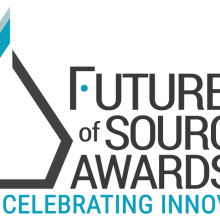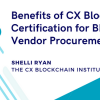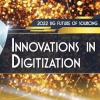This October, the Future of Sourcing Awards will celebrate organizations and individuals that have shown innovation, leadership and transformation in categories that are critical to the sourcing industry. Interviews with the finalists provide helpful insight about their projects, the problem they sought to solve and the impact to their organizations. Below, read about how The Boeing Company developed the Integrated Sourcing Roadmap, the Sourcing Knowledge Repository, as well as provided talent management/training including an outsourcing class, SOW development and Subcontract Requirements Engineering (SRE) training.
Innovations in Talent Management: The Boeing Company
With over 50% of its IT workforce outsourced, Boeing cannot deliver IT services without robust supplier contracts and vendor governance. With increased competition for new talent (resulting in turnover) there is a need for better tools, training and mentorship. Consequently, we developed what we call the Integrated Sourcing Roadmap, the Sourcing Knowledge Repository, as well as provided talent management/training including an outsourcing class, SOW development and Subcontract Requirements Engineering (SRE) training. Additionally, we assigned mentors to assure consistency and improve outcomes across the enterprise in sourcing strategy, solicitation development, supplier selection, and vendor governance. The Roadmap clarifies RAAs and contains procedures with drill-down processes at each step. The Repository is where the rubber meets the road(map) and goes from theory to reality, with hundreds of artifacts that include best practices, templates and training tutorials.
Circa 1999, different IT operations teams performed pre-contract sourcing and post-contract vendor management and were responsible writing statements of work with no common process between them. This resulted in contracts that were sub-optimal at best and The Boeing Company exposed to risks at worst.
Circa 2010 along came the sourcing teams. In the beginning there were five different teams in Boeing IT who performed sourcing work. However, the vendor management role was still being performed by distributed IT operations teams.
Circa 2017 all the sourcing and vendor management teams and functions were centralized, rationalized and adopted one way of doing things.
Today, Boeing IT sourcing teams have the tools, processes and templates needed to optimize our global “OneBoeing” sourcing and vendor management vision, with operations in Bangalore, Mesa, St. Louis, Charleston, Houston, Chicago and Seattle. We call this the Global Sourcing & Vendor Management (GS&VM) team.
In 2018, GS&VM captured over $40M in cost savings and an additional $75M+ in cost avoidance by managing vendors, rewriting SOWs, reducing software license costs, managing license true ups, reducing value-leakage risk, and improving in first time quality of contractual SOWs/SLAs as reflected in SRE scoring, Red Team reviews (non-advocate review) and negotiation results.
The Knowledge Repository has been very popular. For instance, SOW best practices were used 998 times, Technical Evaluation best practices were used 648 times, and Sourcing Strategy best practices were used 334 times, all within the last six months. A few additional highlights:
The GS&VM team was able to seamlessly onboard about 15 new team members
The GS&VM team received praise from numerous sources on the value and utility of the Roadmap, Knowledge Repository, and training programs.
73 sourcing, vendor management, procurement, project management, IT business partner and other employees completed Outsourcing Master Class training in the last six months.
The team performs a retrospective (i.e., lessons learned) and identifies tools/templates/best practices that have changed or need to change each time a significant sourcing project is performed to incorporate the lessons learned and assure continuous improvement. Additionally, all senior positions on the team now require employees to earn their IAOP Certified Outsourcing Professional (COP) certification to demonstrate industry baseline knowledge and drive professional development.
Make talent management a priority, institutionalize processes, tools, and training that help assure continuous capability/competence, and improve first-time quality of team deliverables. And, assure that all stakeholders can easily find what they need to perform their work effectively. If it’s not user friendly, it may not get used.
What gets measured gets done, so put metrics in place that reinforce the process and assure use of the tools. Create a feedback loop for employees to know if and how they are improving. For example, at Boeing our Subcontract Requirements Engineers (SREs) score our high-dollar Statements of Work for quality and risk. These scores are sent back to the team for review, showing areas where improvement may be warranted. Additionally, retrospectives at the end of each significant sourcing event identify opportunities for continuous improvement that may drive changes in tools, processes, or training.
The full team that contributes to this process includes the Boeing organizations: Global Sourcing & Vendor Management (GS&VM), Indirect Supply Chain, Finance, Procurement Financial Analysis, Legal, Export Controls, Global Privacy Office, SRE, InfoSec and IT (service owners and portfolio leaders). Because of the complexity and number of organizations involved, it is extraordinarily challenging to put out quality work without the Roadmap, Knowledge Repository and training. Building tools and processes isn’t enough, however. Everyone needs to be able to easily find and use the information. Consequently, pay attention to the location, look and feel of your knowledge base, making it searchable, user-friendly and actionable.
Region:







